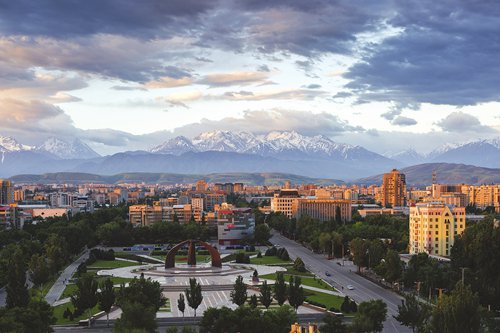
The view of Bishkek, Kyrgyzstan. Photo: VCG
The Embassy of China in the Kyrgyz Republic on Wednesday confirmed to Global Times that a logistics center project jointly invested by Chinese and Kyrgyz companies, which received support from the Kyrgyz government, has been stopped due to local people’s protests over the Kyrgyz government’s lease of land to the joint venture, refuting Western media’s claims that the protest was targeting Chinese investment and China's influence in the country.The Chinese-Kyrgyz joint venture in charge of the project has asked for an estimated $615,760 in compensation from the Kyrgyzstan government.
According to the prime minister of the Kyrgyz Republic, the project in central Kyrgyzstan was put on the agenda as early as in the Soviet Union era, and it was not implemented until late last year with the strong support of Chinese side, for which the Kyrgyz government expressed its gratitude, the Chinese embassy told the Global Times in an email.
The $289-million logistics center project in Kyrgyzstan's central Naryn region officially started on December 11, 2019, when Kyrgyzstan's government promised to loan investors 200 hectares of land for 49 years, said the embassy.
The project was halted after nearly a thousand local people gathered near the region of At-Bashi in the central Naryn region on Monday, protesting against the local government.
The embassy did not provide an official name for the company, but some reports said the joint venture was set up by a Kyrgyzstan company and another company called One Lead One (HK) Trading Limited.
Official statistics show that China is Kyrgyzstan's biggest source of direct investment. From 2013 to 2017, after the launch of the Belt and Road Initiative, China has invested a total of $1.768 billion in Kyrgyzstan.
Analysts said China's projects in Kyrgyzstan mainly involve engineering contracting, such as roads, power grids and power stations, and production capacity cooperation, including mineral development, building materials, refining, food and chemical fertilizers, all of which help Kyrgyzstan fill industrial gaps, reduce import dependence and improve infrastructure.
